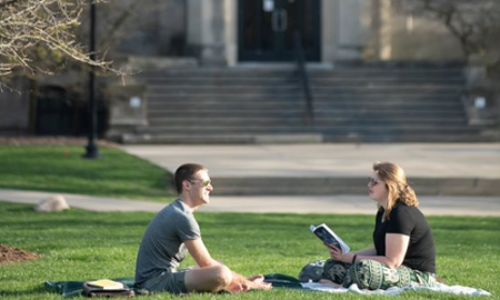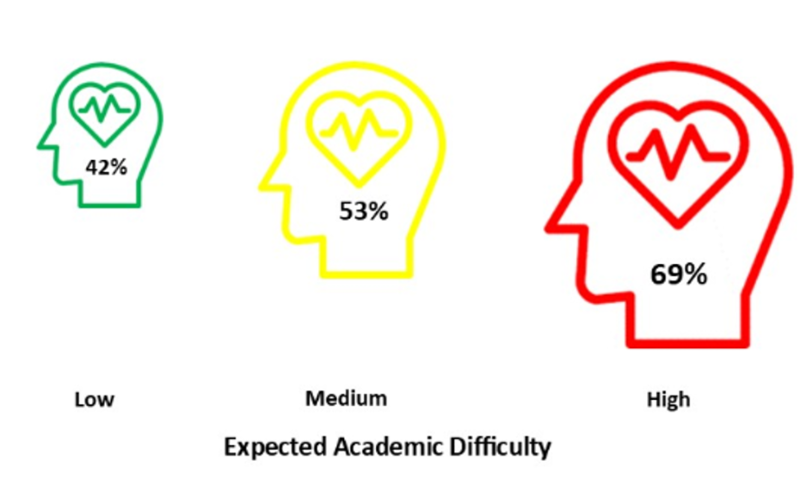The toll of the pandemic on student mental health is evident. For example, more than half (55%) identified substantial (“very much” or “quite a bit”) increases in depression, hopelessness, or loneliness due to COVID. In addition, more than half (53%) identified substantial feelings of mental exhaustion.
Although the majority of entering students across racial/ethnic groups (80-89%) were optimistic about their first year of college and most (76%) did not believe that COVID-19 interfered much with their college plans, mental health challenges present a lingering concern.
Notably, mental and emotional exhaustion may be related to expectations of academic difficulty. Nearly 70% of entering students who experienced a substantial increase in mental and emotional exhaustion indicated high expectations of academic difficulty, compared to 42% of their peers who did not experience substantially increased exhaustion. The combination of exhaustion and expected academic difficulty suggests an imperative for colleges and universities to implement widespread, early, and frequent check-ins by faculty, academic advisors, and student life staff to offer the support and—if necessary—intervention to help students be successful in their first year of college.



